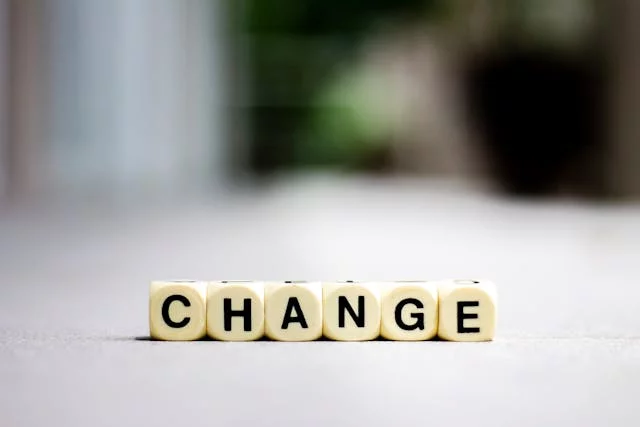Key Points: Play and playfulness yield great benefits for individuals, teams and organizations, but not everyone plays in the same way. There are thought to be eight distinct play personalities. Understanding them can help improve your own and your team’s playfulness.
Play Personalities
Play is an essential part of human behaviour. It serves as a fundamental way to learn, create connections, and find fulfilment. Unfortunately, it is also something that we sort of let go of as we get older, and it something that can often be lacking in the workplace. This is a real shame as play can help with learning, creativity and innovation, with relationship and trust building, with wellbeing and employee experience and ultimately with individual and team performance as well.
As the work “personalities” brings to life, though, we’re not all the same. Just as people have different broader personalities, we all value different types of play in / to different extents. What I consider rewarding play could just seem frivolous and annoying to you, or vice versa. The more mature we get, the more clearer it becomes which styles of playfulness we find most rewarding and comfortable.
To help get a better understanding of the different types of play that we might enjoy, it’s worth exploring the eight play personalities identified by Dr. Stuart Brown. We’ll introduce each of them below, in alphabetical order:
1 – The Artist/Creator
Artists and Creators find play in making things, combining things, changing things, and so on.
This creative and artistic style can appear in many walks of life including the arts, music, software, product design, architecture, you name it. Basically anywhere where there is scope to bring ideas to life through the creation of something, there is space for artistic and creative play. Believe it or not, this even appears in finance and similar fields that might feel dull!
If you’re drawn to this style, you might find joy and reward in the novel things that you can create, the process of creating and sharing them, the innovation that exists in all of this and the outcomes you can produce. You’ll also probably enjoy roles that give you space to create.
2 – The Competitor
Competitors are drawn to play that involves elements of competition and winning, often thriving in environments where they can measure their skills against others.
Whatever the specific domain is that competitors are playing in, they typically are motivated to some extent by the external validation of their success and the concrete measurements of their performance.
In the workplace, they’ll probably enjoy things like leader-boards, clear goals and feeling like they are the best at whichever game they are playing. You might find people with this play preference in sales or similar roles, where there are clear benchmarks for success.
3 – The Collector
Collectors like to gather and appreciate cool stuff, be it physical things like miniature figures or intangible things like experiences.
The playfulness that collectors experience isn’t just about the objects or experiences though, it’s also about the planning, pursuing, structuring, maintaining, tinkering-with and categorising these things.
In the workplace people who enjoy this type of play may enjoy working as an archivist, curator, sommelier or even in a record shop maintaining and fine tuning the collection of records for sale. These individuals could also enjoy running and maintaining a website, or even certain aspects of project management as well.
4 – The Director
Directors are said to enjoy making plans and putting them into action to achieve their goals. People with this play preference love the power and action of making things happen. They also love seeing how all the pieces fit together, and then moving them into just the right places to create success.
In the workplace people with this play preference might enjoy things like programme and project management, events management, party planning and other forms of executive planning and delivery lead roles.
5 – The Explorer
Explorers are driven by the thrill of discovery, whether that’s physically exploring new places, emotionally exploring relationships, or mentally exploring new ideas.
This personality type loves to see and experience new things and is often characterised by an insatiable curiosity about the world. They find play in the journey of uncovering the unknown.
In the workplace you might find explorers enjoying working in journalism, research, polling and innovation-led roles.
6 – The Joker
Jokers are perhaps the closest to what we traditionally think of when we think of playing. They typically thrive on some form of silliness, jokes, challenging of convention and / or practical jokes.
Individuals with this play preference might well have been a bit of a class-clown, and in the workplace they could now be a bit of the office clown. They’ll typically enjoy this type of tom-foolery, and the attention it might bring them.
7 – The Kinesthete
As the name suggests, kinesthetes find joy in movement and physical engagement.
This can manifest as a love for sports, dance, or any activity that involves using the body. For Kinesthetes, movement is both a form of expression and a necessity for mental clarity. They are the ones who feel restless without regular physical activity and find relaxation through exertion.
Many people may have this desire, but be unable to bring it into their work. Roles that do cater for this type of play include sports coaches, physical therapists, athletes, and so on.
8 – The Storyteller
Storytellers play through narrative and imagination. Storytelling can also manifest through games like role-playing or simply through the powerful act of reading and immersing oneself in different lives and adventures.
In the workplace, individuals with this play preference may be writers, filmmakers, or people who simply enjoy dreaming up new worlds and characters.
Learning More
We don’t have much to add to this. Some of it reminds us of Gardner’s Multiple Intelligences, so it might be worth checking that out. Similarly, it might be interesting to read a bit about some of the other personality models out there, like the Big-5 model.
You can also learn more at the website for the US National Institute for Play, which also has a link to a mini play styles quiz, which might be fun.
More broadly on the role of play and playfulness in work, you can listen to our podcast on the subject below:
Our View
There is a lot of evidence that playfulness and play are helpful in many ways. This seems to be pretty empirically tested and validated, with supporting evidence from a range of disciplines. Given this, and our own experiences, we fully believe that play and playfulness should be incorporated into workplaces where possible.
We also fully agree that people are endlessly varied and different, and these individual differences almost certainly mean we all find fun and playfulness in different ways. We think it makes perfect sense that the play I end up enjoying as an adult might be different to the play you enjoy. Recognising that different preferences and experiences of play exist can be helpful to bear in mind in our teams so that we can think about and structure a range of play opportunities that include everyone.
That said, we’re not so sure about the actual categories in this model. We wonder if some of the differences in play preferences could be to do with social context and underlying skills and capabilities as well, as opposed to some sort of intrinsic preference. We speculate that some of the challenges of more conventional personality tools like Insights and MBTI may exist in even stronger form in this model. We could be misunderstanding this though.
Regardless, we think this is an interesting idea and nice bit of food for thought, though perhaps not to be taken too seriously, which is rather fitting given the subject!
How We Help Organizations
We provide leadership development programmes and consulting services to clients around the world to help them become high performing organizations that are great places to work. We receive great feedback, build meaningful and lasting relationships and provide reduced cost services where price is a barrier.
Learning more about who we are and what we do it easy: To hear from us, please join our mailing list. To ask about how we can help you or your organization, please contact us. To explore topics we care about, listen to our podcast. To attend a free seminar, please check out our eventbrite page.
We’re also considering creating a community for people interested in improving the world of work. If you’d like to be part of it, please contact us.
Sources and Feedback
Brown, S., & Vaughan, C. C. (2009). Play: How it shapes the brain, opens the imagination, and invigorates the soul. Avery.
Also – from podcasts etc.
We’re a small organization who know we make mistakes and want to improve them. Please contact us with any feedback you have on this post. We’ll usually reply within 72 hours.






